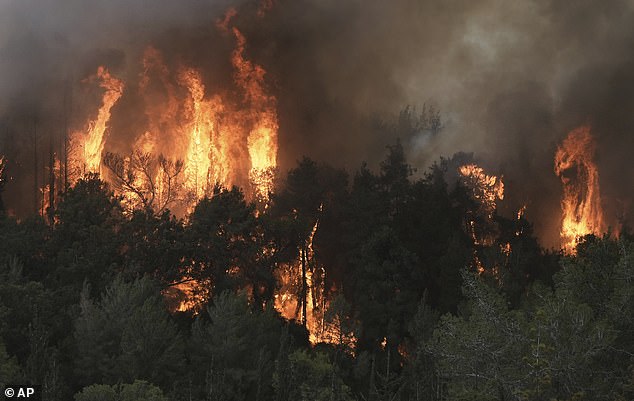
Gen Alpha’s Lifetime Climate Risks: Scientists Predict Escalating Heatwaves, Floods, Wildfires
Climate Change’s Disproportionate Toll on Younger Generations
[Image 1: A raging wildfire near Jerusalem, Israel, April 2025]
A Crisis Accelerating for the Young
Climate change is intensifying disasters globally, from European heatwaves to Pacific typhoons. But children born today—Generation Alpha (post-2007)—will face far more extreme climate events than any previous generation. A study by Vrije Universiteit Brussel (VUB) warns that 1.5 billion children could endure unprecedented heatwaves if greenhouse gas emissions remain unchecked. Even with aggressive climate action, their futures will be fraught with risks like crop failures, floods, and wildfires.
Key Findings: Heatwaves, Hunger, and Extreme Weather
Using demographic data and climate models, researchers projected exposure to six extremes under three warming scenarios by 2100:
- 1.5°C (Paris Agreement target, currently 0.2°C away)
- 2.5°C
- 3.5°C (current trajectory)
Unprecedented Threats
- Heatwaves: 52% of children born in 2020 will face extreme heat even at 1.5°C—triple the rate of 1960 births. At 3.5°C, this jumps to 92%.
- Crop Failures: 431 million children risk lifelong food insecurity under 3.5°C.
- Wildfires, Floods, and Cyclones: Millions more will confront these disasters as warming escalates (see table below).
[Image 2: Drought-exposed land in Turkey, April 2025, revealing buried waste]
| 1.5°C Scenario | 3.5°C Scenario | |
|---|---|---|
| Heatwaves | 855M | 1.5B |
| Crop Failures | 316M | 431M |
| Wildfires | 119M | 147M |
| River Floods | 132M | 191M |
Socioeconomic Inequity Deepens
Vulnerable communities bear the heaviest burden. At 3.5°C, 95% of socioeconomically disadvantaged children face extreme heat versus 78% in wealthier groups. “Children in low-income regions will suffer the worst,” said lead author Dr. Luke Grant.
A Moral Imperative to Act
“Today’s youth inherit a crisis they didn’t create,” said Save the Children CEO Inger Ashing. The study urges rapid emissions cuts to curb rising injustice. Professor Wim Thiery emphasized, “Every fraction of a degree matters. Leaders must prioritize younger generations.”
[Image 3: Flooded streets in Bangkok during a 2025 heatwave]
Conclusion: The Window for Change
While risks are inevitable, reducing emissions can still prevent the worst outcomes. As Thiery notes, “Limiting warming to 1.5°C instead of 3.5°C halves heatwave exposure for millions.” The time to act is now—for the sake of Gen Alpha and beyond.
Images: Wildfires (Israel), drought (Turkey), floods (Thailand) illustrate escalating climate impacts. Data sourced from VUB study published in Nature.


